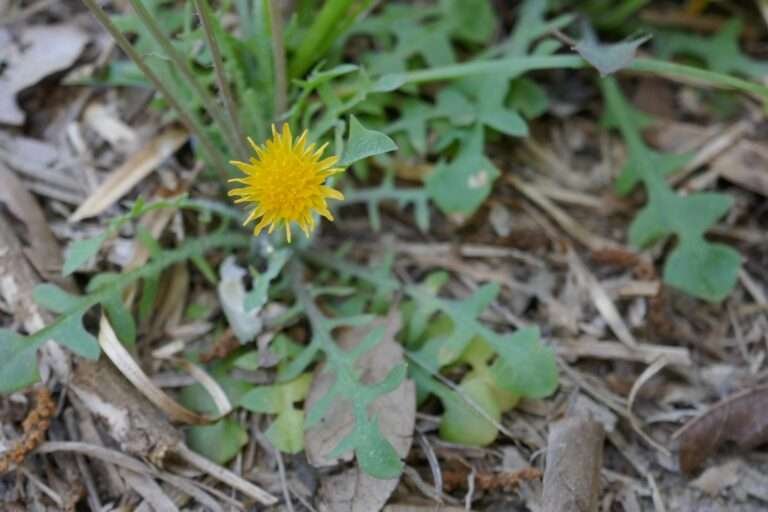
Krigia virginica
(Dwarf Dandelion)

Common Names, Latin Name, and Family
Some of its common names (basically different spellings) include dwarf dandelion, Virginia dwarf dandelion, Virginia dwarf-dandelion, and Virginia dwarf dandelion.
Its Latin name is Krigia virginica.
It is found in the Asteraceae, or aster, family.
Form
It is an annual wildflower that grows to a height of about 12 inches when in bloom.
Leaves
The leaves are mostly in a basal rosette and are deeply lobed.
They are oblanceolate to elliptic in shape.

Flowers
The tiny yellow flowers appear in the winter and spring.
The plants die back in the heat of summer but new ones generally start to appear in late winter if seeds were left in the area.

Habitat
It occurs naturally in dry forests, pinelands and disturbed sites.
Native Range
In Florida dwarf dandelion if found naturally occurring from the panhandle south to Sarasota County.
It is native to the following states: AL, AR, CT, DC, DE, FL, GA, IA, IL, IN, KS, KY, LA, MA, MD, ME, MI, MO, MS, NC, NH, NJ, NY, OH, OK, PA, RI, SC, TN, TX, VA, VT, WI, and WV.
Landscape Use
In the home landscape it grows in full sun and needs to be in a place without competition from grasses or thick groundcovers.

Wildlife Uses
The flowers are a nectar source for many small pollinators.
Propagation
Propagation is achieved by growing it from seed. It is best direct sown where it will be growing.
Leaving the parent plants to go to seed will insure next year’s crop of new plants.
Plants may survive transplanting if the roots are totally left intact. So use a trowel to cut around the base of the plant and move soil and all without disturbing the roots. Transplanting in this way is usually successful.